In the memories of his students, the late Professor Dang Van Ngu was an especially strict teacher, forcing his students to "behave" when they heard a car; he was the dean who waded through fields and forests to help people relieve their suffering from malaria.
In a room of about 30 square meters, simply and warmly furnished, Associate Professor, Dr. Pham Van Than, former Head of the Department of Parasitology, Hanoi Medical University, flipped through the pages of the book Medical Parasitology .
The medical textbook consists of two volumes of nearly 1,000 pages and was compiled and edited by the 84-year-old doctor two years ago, shortly after his liver cancer surgery.
At his "countryside" age, Associate Professor Than still spends most of his day on medicine, a job he describes as "in his blood".
"I was lucky to learn many things from Mr. Ngu, from work to lifestyle," Associate Professor Than said slowly.
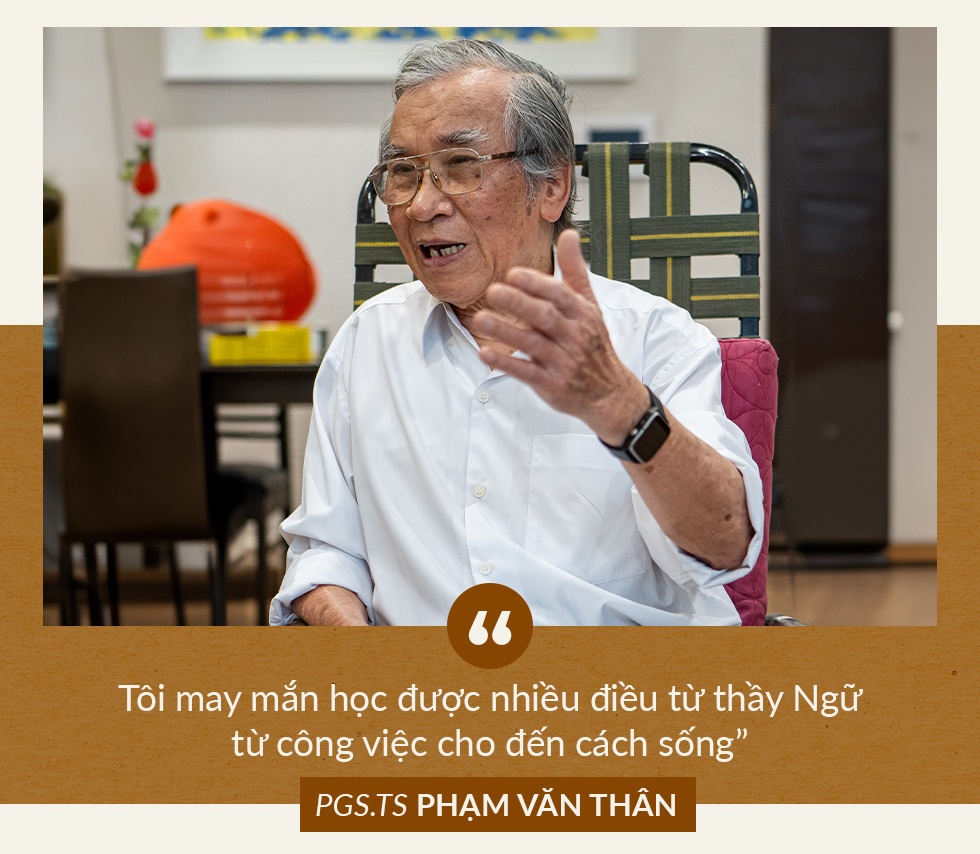
The meeting of Dan Tri reporter with Associate Professor, Dr. Pham Van Than took place before the Vietnamese Teachers' Charter Day on November 20, to recall with him the memories of Professor Dang Van Ngu, the scientist who laid the foundation for the field of Medical Parasitology in Vietnam, who was also the great teacher of Associate Professor Than and many other great figures in the medical field.
Dang Van Ngu in the memories of his students is the "steel" of an especially strict teacher, making his students "have to be obedient" upon hearing the sound of a car; a meticulous and disciplined professor in research work.
Professor Dang Van Ngu: The institute director waded through the rice fields, half a century later, students still mention his name (Video: Minh Nhat).
But deep inside this man of steel is the "warm blood" of a scientist who abandoned modern material conditions abroad, returned to his homeland to "wade through the fields", "cross the forests", work under "bombs", to help people suffer less from malaria and parasites; and was a single father raising his children.
As Associate Professor Pham Van Than opened: "The career and great scientific achievements of Professor Dang Van Ngu have been reflected through many articles, books, reports, documentaries, and exhibits displayed at the Center for Preserving Vietnamese Intellectual Heritage.
Today, I want to tell about Mr. Ngu through what a student hears, sees and learns.

PV: Parasitology is a difficult and risky field, especially during the period of resistance against America when our country faced many difficulties and shortages. Was it Professor Dang Van Ngu who made you decide to stick with this field?
Assoc. Prof. Dr. Pham Van Than: In the medical field, there are 36 specialties. At that time, there were specialties that many people liked, such as surgery, obstetrics, and internal medicine. The most "choosy" specialties were parasitology, psychiatry, and dermatology.
Honestly, when I was assigned to the Parasitology Department, I was very sad and at first I always wanted to change my specialty.
Everything changed when I became Mr. Ngu's student and heard him tell stories about his career.
Around 1935, the Indochina Medical School recruited Parasitology Teaching Assistants, and Mr. Ngu was one of two medical students who volunteered to apply.
Entering the field of Parasitology means accepting little fame, low income, and hardship. Parasitology means working with waste (feces, urine, phlegm), worms, scabies, ringworm, lice, bedbugs, working mainly with poor people, in poor communities...
He confided that few people care about this disease, but many of his people suffer from it, such as worms, scabies, ringworm, and especially malaria, which is very serious, so he wants to go into that profession.
From 1943 to the end of 1948, he was sent to Japan as part of a student and graduate student exchange program between the two countries. He studied, worked, and conducted research at laboratories at Tokyo University; Tokyo Infectious Diseases Hospital, and the 406th US Military Hospital in Japan.
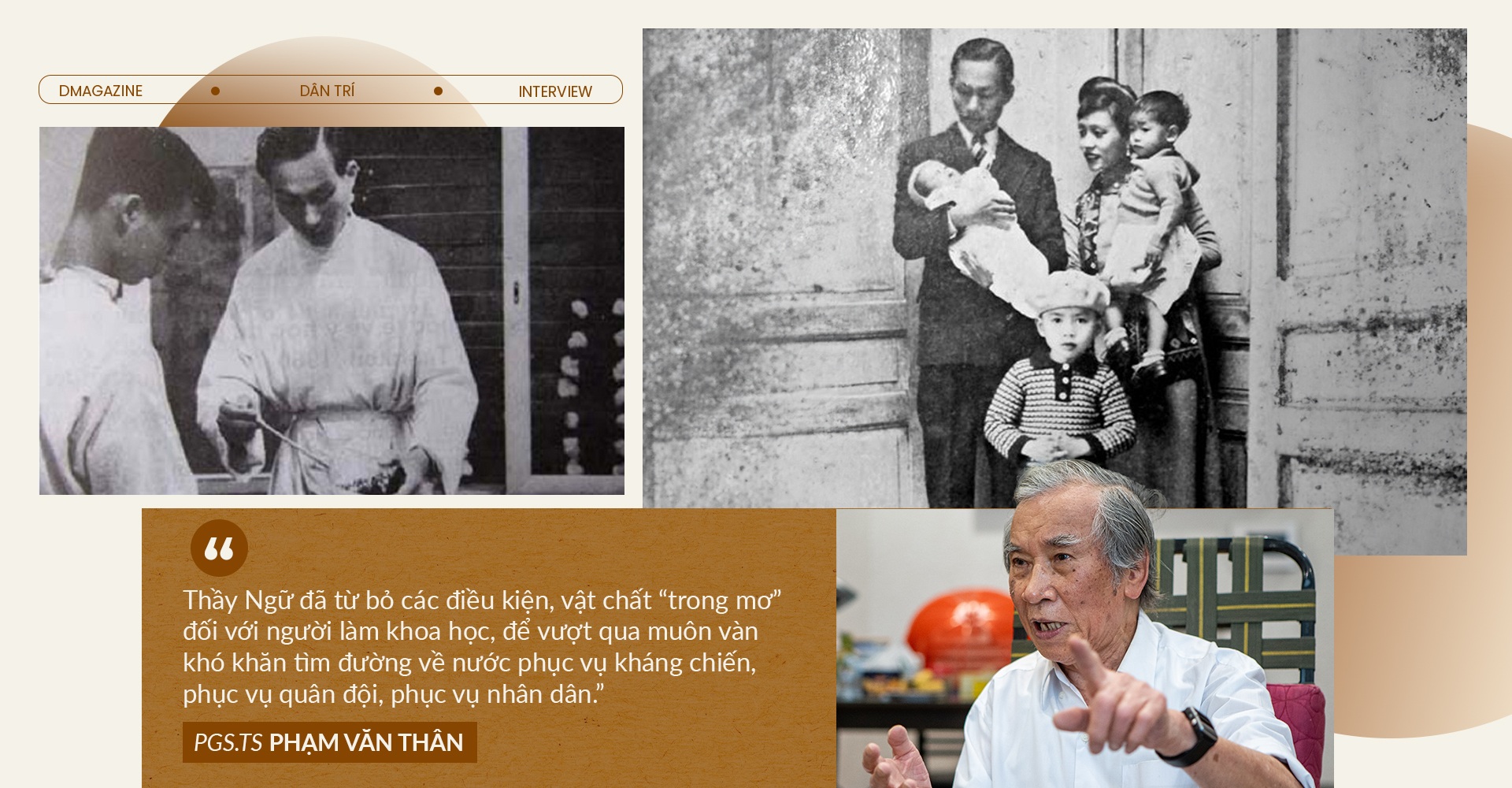
In 1949, Mr. Ngu gave up the "dream" conditions and material conditions for scientists, to overcome countless difficulties to find a way back to the country to serve the resistance war, serve the army, and serve the people.
Hearing this story, I truly admired him and decided to follow his example and dedicate my life to the field of Parasitology.
PV: What are your impressions during the years as Mr. Ngu's student?
Associate Professor Dr. Pham Van Than: He is a very simple person. He lives in a communal house and eats in a communal kitchen. We only see that he has a few sets of clothes: a few white shirts, a few pairs of khaki pants, and a few pairs of shoes. The suit is probably the most valuable thing in his wardrobe.
I once saw my teacher use a piece of tape to temporarily patch a small hole in his pants.
However, in any teaching environment, the image, style, behavior, and language of a respectable teacher still radiates in Professor Dang Van Ngu.
Every time he went to class, his clothes had to be neat and tidy. Mr. Ngu had a habit of buttoning all the buttons on his shirt without missing a single one. This is one of the things I learned from him until now.
In teaching, he prepares his lectures carefully, meticulously, punctually, with precise language and scientific terminology, paying attention to information channels: precise words and images, and always getting feedback from students. Mr. Ngu pays special attention to students' practice and internship.
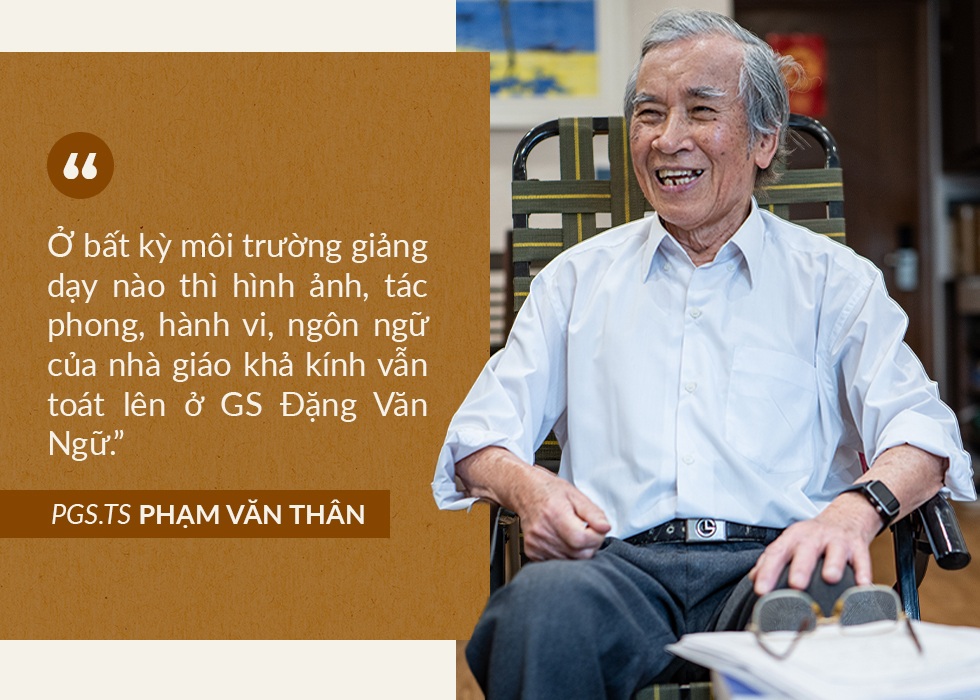
Every time he went to the department, Mr. Ngu did not sit in the head teacher's chair, but spent almost all of his time in the research lab and closely followed us in our experiments to guide and check.
We made many mistakes but the teacher corrected and guided us little by little.
Mr. Ngu works very principled, meticulous, precise but flexible in all tasks when necessary. Therefore, although he is very tired and very scared, everyone respects and likes to work directly with him.
PV: Have you ever been scolded by your teacher?
Associate Professor, Dr. Pham Van Than: Mr. Ngu is very strict!
I remember when we were young, many times when the teacher was away, we would sit down and drink water and talk. However, just hearing the sound of the teacher's car in the yard would startle us and we would rush to our desks to work.
Once the teacher asked us when we usually read books. Many of us confessed that we read in the lab and were immediately scolded by the teacher.
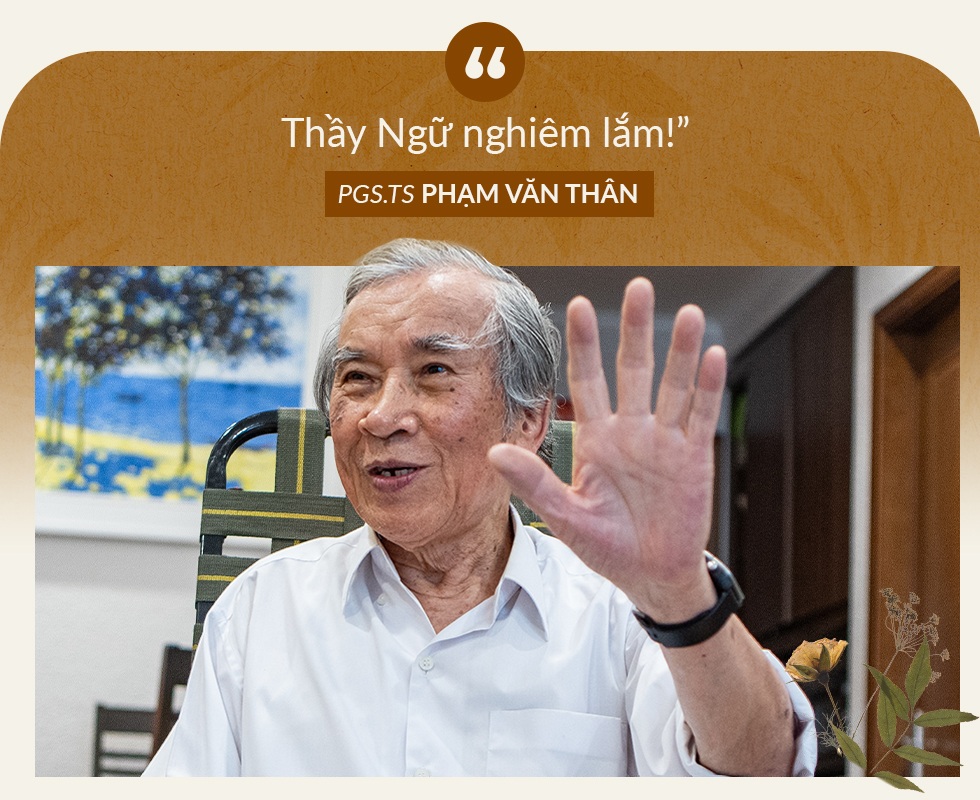
For Mr. Ngu, wherever he goes, he does his work. Going to the lab is to do experiments and research. Night is the time to read books. Therefore, he often stays up very late.
As a student and then a colleague of his, I have never been praised by him but I have been scolded countless times.
I still remember the time when the department was evacuated to Bac Thai (the old province merged from Bac Kan and Thai Nguyen). The place we lived in was a stilt house with buffalo, cows, chickens and ducks underneath, so there were a lot of fleas and fleas.
Seeing that the students were so bitten by fleas that they couldn't eat or sleep, the head teacher in charge of us ordered DDT to be sprayed to kill the fleas.
Although DDT is very effective in killing fleas, it is only used in anti-malarial spraying. In agriculture, 666 must be used to avoid drug resistance.
The head teacher knew this rule well, but because he wanted to completely eradicate fleas from the students, he took the risk of "breaking the rule".
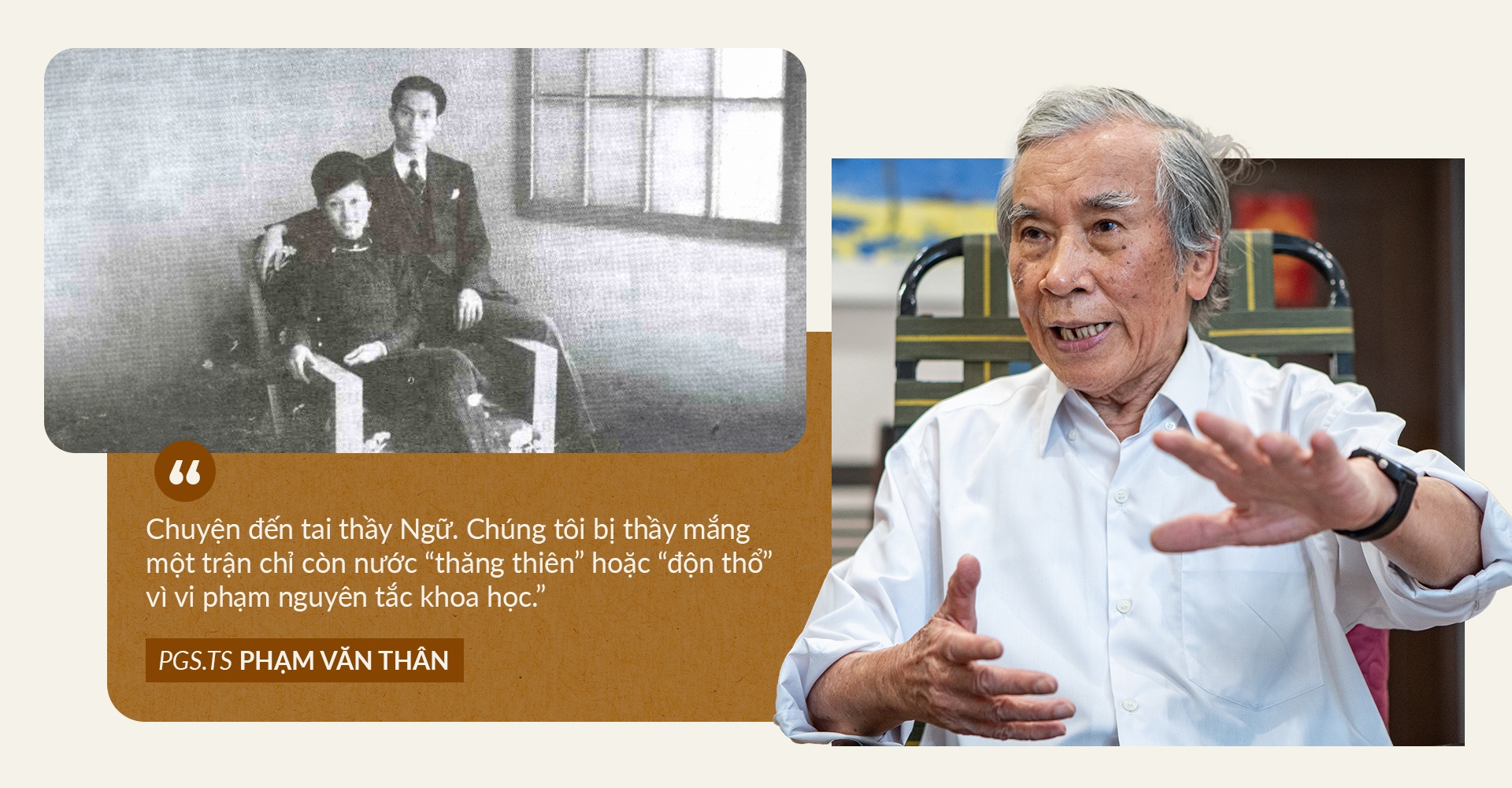
The story reached Mr. Ngu's ears. We were scolded by him and had no choice but to "ascend to heaven" or "disappear into the ground" for violating scientific principles.
Looking back, we realized that we were able to grow up because of his strictness. We are grateful to him for such criticism.

PV: What do you respect most about your teacher?
Associate Professor, Dr. Pham Van Than: Dang Van Ngu's "quality" in scientific research is something we always admire and try to follow.
Since starting his career in Parasitology, Professor Dang Van Ngu has traveled to many remote regions, hamlets, villages, even to the edge of forests, streams, and cowsheds, to research Parasitology.
Even when he became the Director of the Vietnam Institute of Malaria - Parasitology and Entomology (later the Central Institute of Malaria - Parasitology - Entomology) and the leader of the Department of Parasitology, Hanoi Medical University, his selflessness for science remained unchanged.
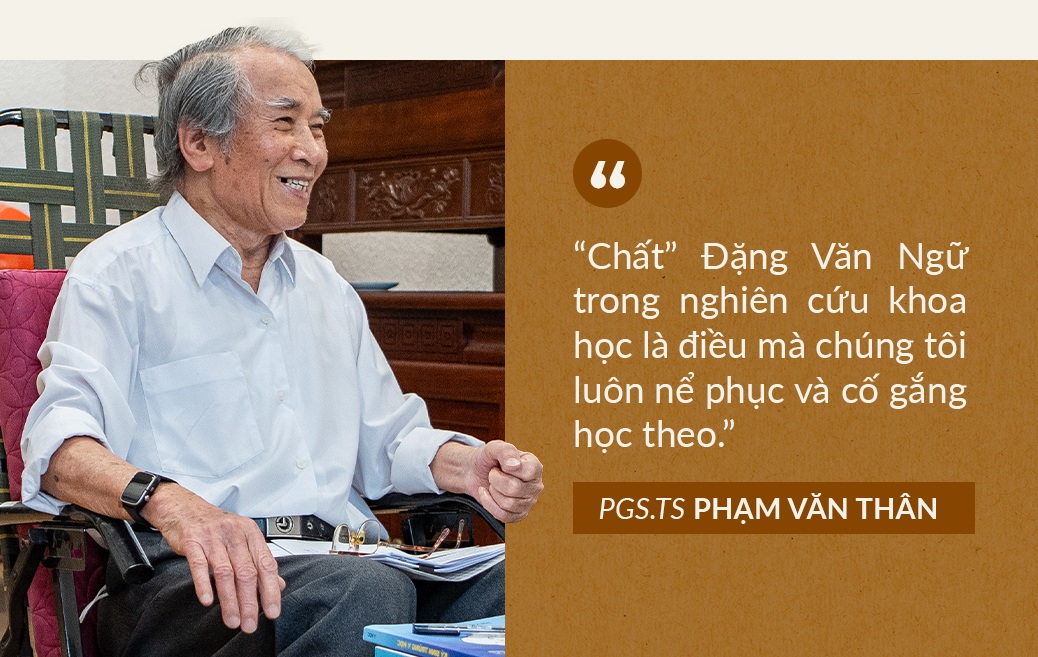
I still remember that time I often had to go to the hospital to get his signature. However, it was rare to see him in the Director's office. Sometimes he was in the lab, sometimes he went down to the mice, bugs, and fungi area to do research.
Once, when he received information that farmers in the low-lying areas of Nghia Hung, Nam Dinh had itchy hands and feet, Mr. Ngu went directly to the field to wade through the fields to find the disease.
Later, he discovered that the culprit was duck flukes, which were released into the fields by duck droppings. When farmers waded in, they were easily infected. The flukes caused dermatitis and could lead to infection.
When the whole department was evacuated to Bac Thai, he ate in the communal kitchen and slept in a hut in the middle of the forest.
Because he was an old man and a leader, the food suppliers often secretly added extra food. Once, when he learned that he was given priority over everyone else, the teacher immediately criticized him. With the teacher, "a soldier has a quota", there were no exceptions.
There were no wells in the evacuation area, so we had to drink stream water. Every time it rained, the stream became muddy. Young people like us were hesitant, but he drank it as usual without complaining.
His enthusiasm and dedication to science were passed on to his students in the classroom. Parasites mainly occur in the blood and intestines. There are many types of intestines. When examining, you have to look at the color of the stool, even the smell, and whether there is blood, pus, or mucus.
Therefore, when practicing, the teacher demonstrated and required us to carefully evaluate the patient's stool before putting it under the microscope to observe, in order to accurately "catch" the disease.
Because of his passion for Parasitology and compassion for the poor and vulnerable, the professor devoted his whole life to Parasitology, laying a solid foundation for the development of Vietnam's Parasitology industry.

PV: I know that Professor Dang Van Ngu has a rather special private life, as a single father raising his children. Can you share more about this story?
Associate Professor, Dr. Pham Van Than: Professor Dang Van Ngu's wife is Mrs. Ton Nu Thi Cung. She is a technician working at the Penicillin research lab and has helped her husband a lot in successfully cultivating and producing this antibiotic.
It was this antibiotic that was born in the middle of the mountains, under very primitive research conditions, that contributed greatly to the victory of the resistance war against the French. Thanks to "Penicillin water", 80% of wounded soldiers could return to their combat units without having their limbs amputated.
Unfortunately, in 1954, she passed away in Viet Bac due to illness. At this time, Mr. Ngu was just over 40 years old.
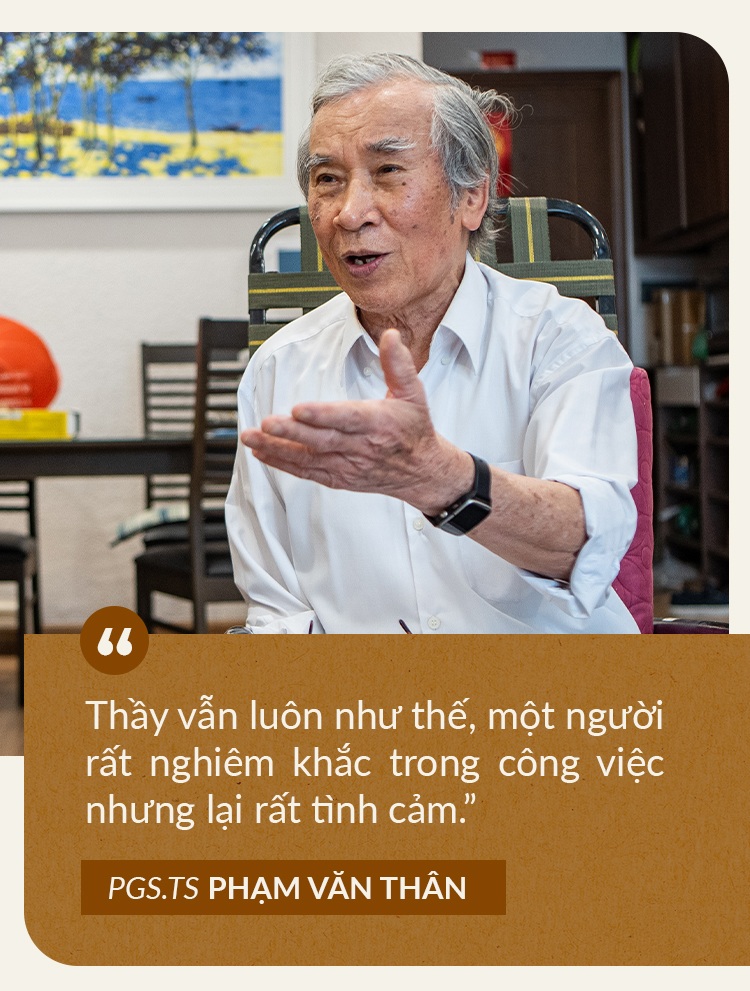
Her family, his family, the leaders of the Central Committee of the Vietnam Women's Union, and the women in the Parasitology Department saw the scene of a "single father raising children" and felt sorry for him, so they really wanted him to remarry.
But he only thanked and refused, determined to stay single "to worship his wife and raise his children" until he entered nirvana to meet her.
During the evacuation, my youngest daughter, Quy, came to visit me from Russia. I was surprised to see my teacher letting her sleep with his arm as a pillow. He said, "Her mother passed away early. I will do whatever I can to replace her."
He is always like that, a very strict person at work but very emotional.
His wish was to raise his children to be good people and that wish has come true.

PV: When talking about Professor Dang Van Ngu's career, we cannot help but mention his great contributions in the fight against malaria. How do you feel about your teacher's dedication to this issue?
Assoc. Prof. Dr. Pham Van Than: At that time, malaria was a nightmare for soldiers and people in remote areas. Therefore, eliminating malaria was also one of the biggest goals in Professor Dang Van Ngu's career.
From 1957 to 1962, the Vietnam Institute of Malaria, Parasitology and Entomology under the direction of Director Dang Van Ngu conducted a comprehensive survey and investigation of malaria throughout the North.
At the end of 1962, the Government approved the Malaria Eradication Program in the entire North within 3 years. The Chairman of the Central Malaria Eradication Committee was the late Prime Minister Pham Van Dong and the person directly in charge of the program was Mr. Ngu.
At the end of the program, in late 1964, malaria had been pushed back to 20%. This was a very positive result, considering that previously, in mountainous and rural areas, the malaria rate was up to 90-100% of the population.
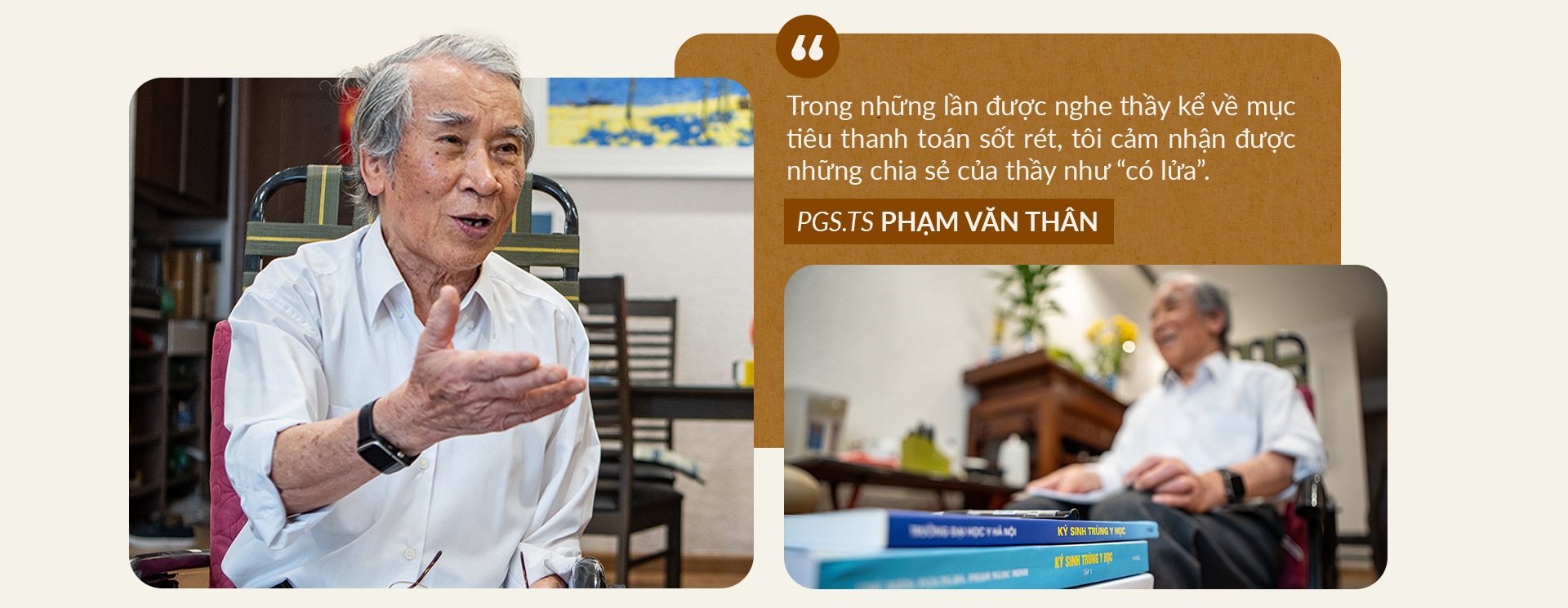
Every time I heard him talk about the goal of eliminating malaria, I felt like his words were "on fire".
With the goal of completely eliminating malaria from community life, Professor Ngu always emphasized the importance of vaccines. In order to create this ultimate "weapon", the professor braved bombs and bullets and decided to enter the war zone.
Quang Binh and Quang Tri are the two areas chosen by the teacher to conduct exploratory research.
In letters to his daughter after each trip, the professor mentioned the fierce bombings of the US but also expressed some optimism about the initial research results.
In March 1967, Professor Dang Van Ngu and his colleagues, including 12 doctors, went to the Tri-Thien Hue war zone (Di B) to research on-site a vaccine against malaria.
On this fateful business trip, because of enemy bombs and bullets, unfortunately the great ambition was not achieved!

PV: Do you and your colleagues in the department know about Professor Dang Van Ngu's decision to go to B?
Assoc. Prof. Dr. Pham Van Than: Even though our department was evacuated to Bac Thai at that time, we heard vaguely about your decision to go to B.
A few days before going to B, the teacher went from Hanoi to Bac Thai for a meeting. We are sure that the information about his trip is correct, because before each business trip, he always went to the department meeting.
That meeting was like any other, lasting only 30 minutes. The main purpose was for the teacher to instruct and urge everyone to complete their tasks well.
Everyone was worried but did not dare to let the teacher know. The war was at its most fierce, and everyone understood that going to B was a life-threatening trip because the risks were greater than the benefits. In addition, research into a malaria vaccine took a long time, making it even more dangerous.
At the moment of parting, Mr. Pham Hoang The, who was in charge of us at the evacuation area, shook hands with Mr. Ngu. When the professor got into the car, Mr. The ran to the car to shake his hand again because he was "afraid that I might not see the professor again in the future."
Sadly, that time he left and was gone forever.
On April 1, 1967, my teacher died in a B52 bombing raid by the US while researching malaria in the western part of Phong Dien district, Thua Thien Hue province.
PV: What were your feelings when you received the news that your teacher had passed away?
Assoc. Prof. Dr. Pham Van Than: We heard the news a few days after he died. Although we had anticipated what might happen, we were all shocked and heartbroken. That whole day, I felt like I had lost my soul.
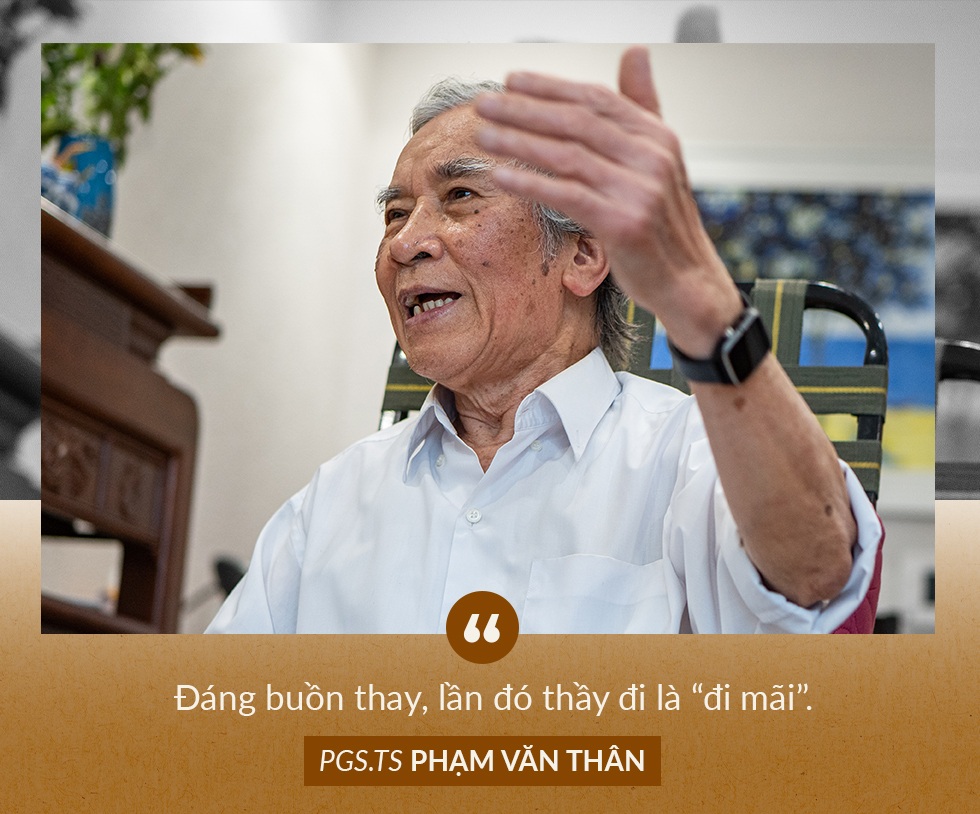
Professor Dang Van Ngu passed away at the age of just over 50. The professor devoted his entire life to science and to the people. He passed away at the moment he was dedicating himself to this noble cause, right on his homeland after decades away.
At this time, the malaria vaccine prepared by him and his colleagues from sporozoites in the salivary glands of mosquitoes has shown very promising initial results in human trials.
Unfortunately, his whole career and many other projects remained unfinished.
Teacher "goes", the youngest daughter Dang Nguyet Quy wrote some heart-wrenching poems:
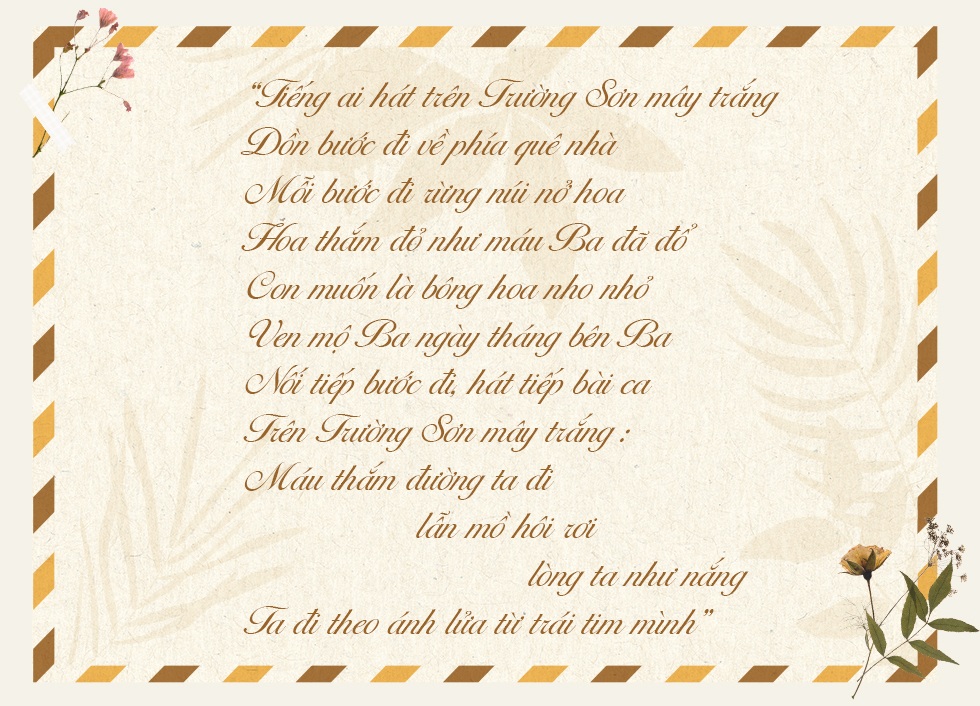

PV: How valuable are the "legacies" that Professor Dang Van Ngu left behind for the Parasitology industry as well as future generations?
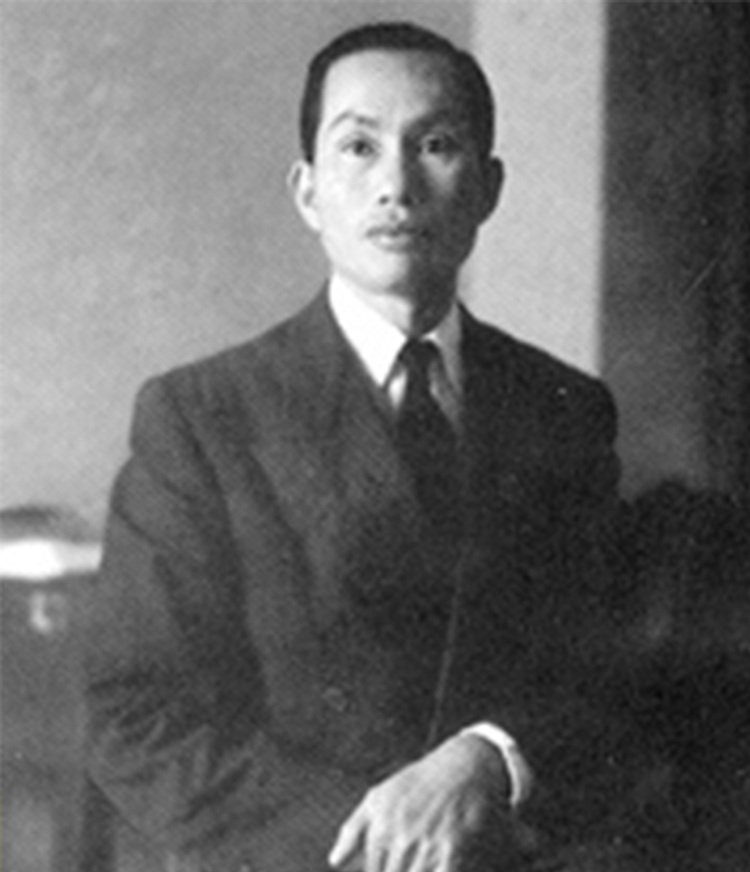
Assoc. Prof. Dr. Pham Van Than: In 2023, the World Health Organization (WHO) officially introduced the anti-malarial sporozoite vaccine into human use to prevent malaria.
In recent years, along with the professor's previous research direction, the works of international scientists have continued his unfinished dream: Publishing research results on the malaria sporozoite vaccine.
The philosophies, strategies, solutions and key measures of the Malaria Control and Eradication Plan still retain their scientific and practical value today.
Not only applicable to malaria, but also to other vector-borne diseases (mosquitoes, insects), including dangerous diseases such as dengue fever, Japanese encephalitis, zika...
"The leaves have fallen back to their roots" for over half a century now, but Dang Van Ngu's "legacy" as a scientist, teacher, father and scientific works still retains its value to this day and will last forever.
PV: Thank you for this conversation!
Source



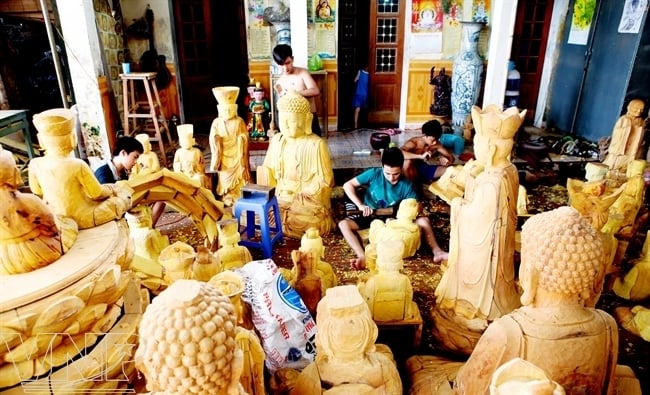










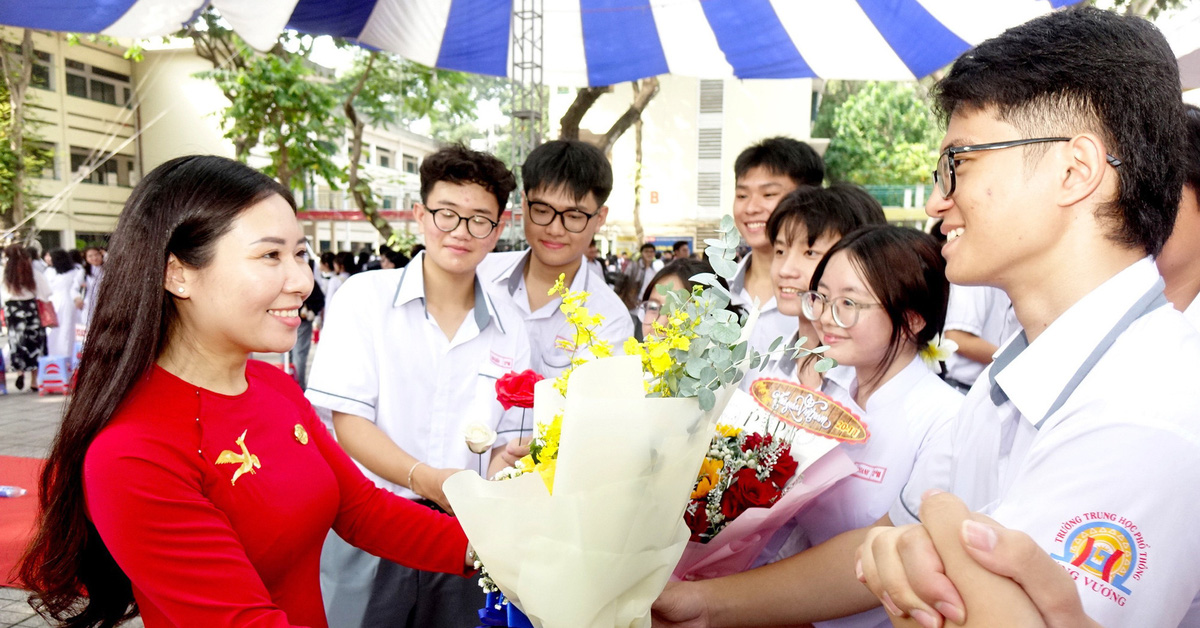
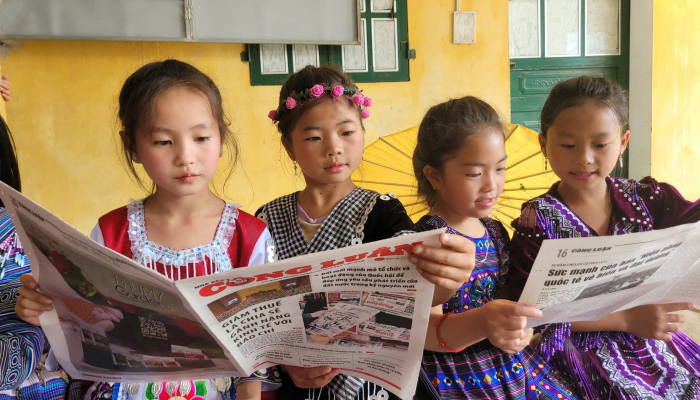

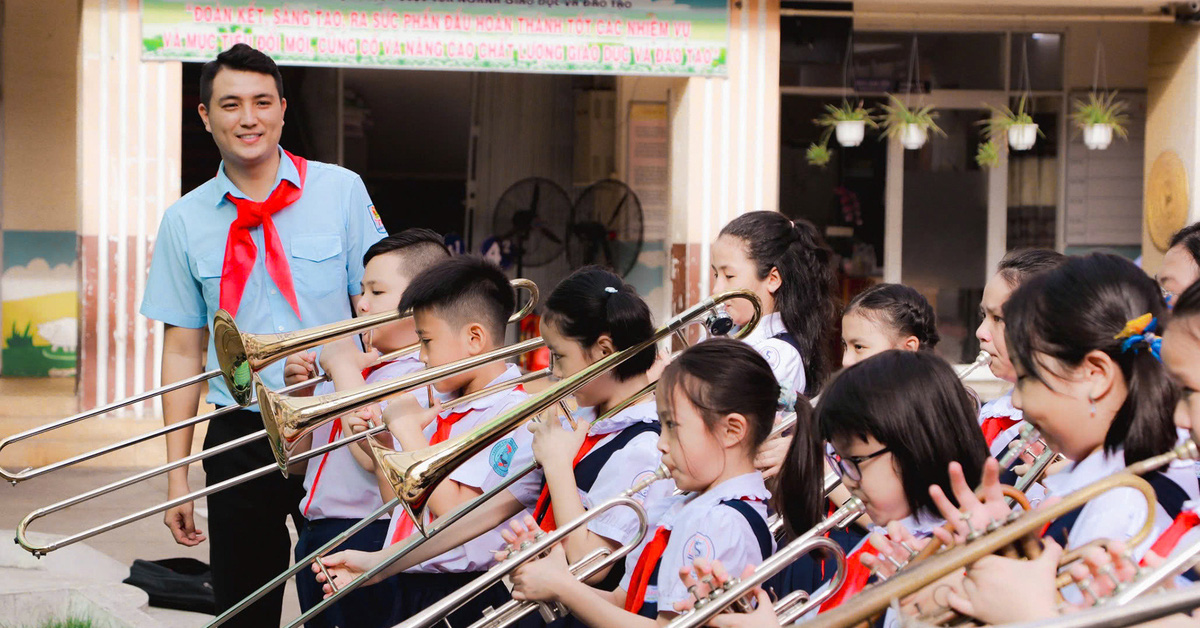
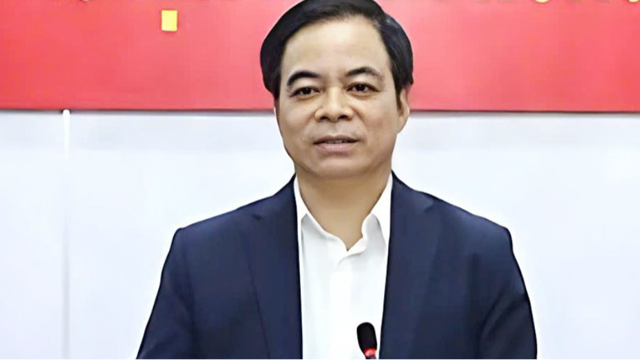

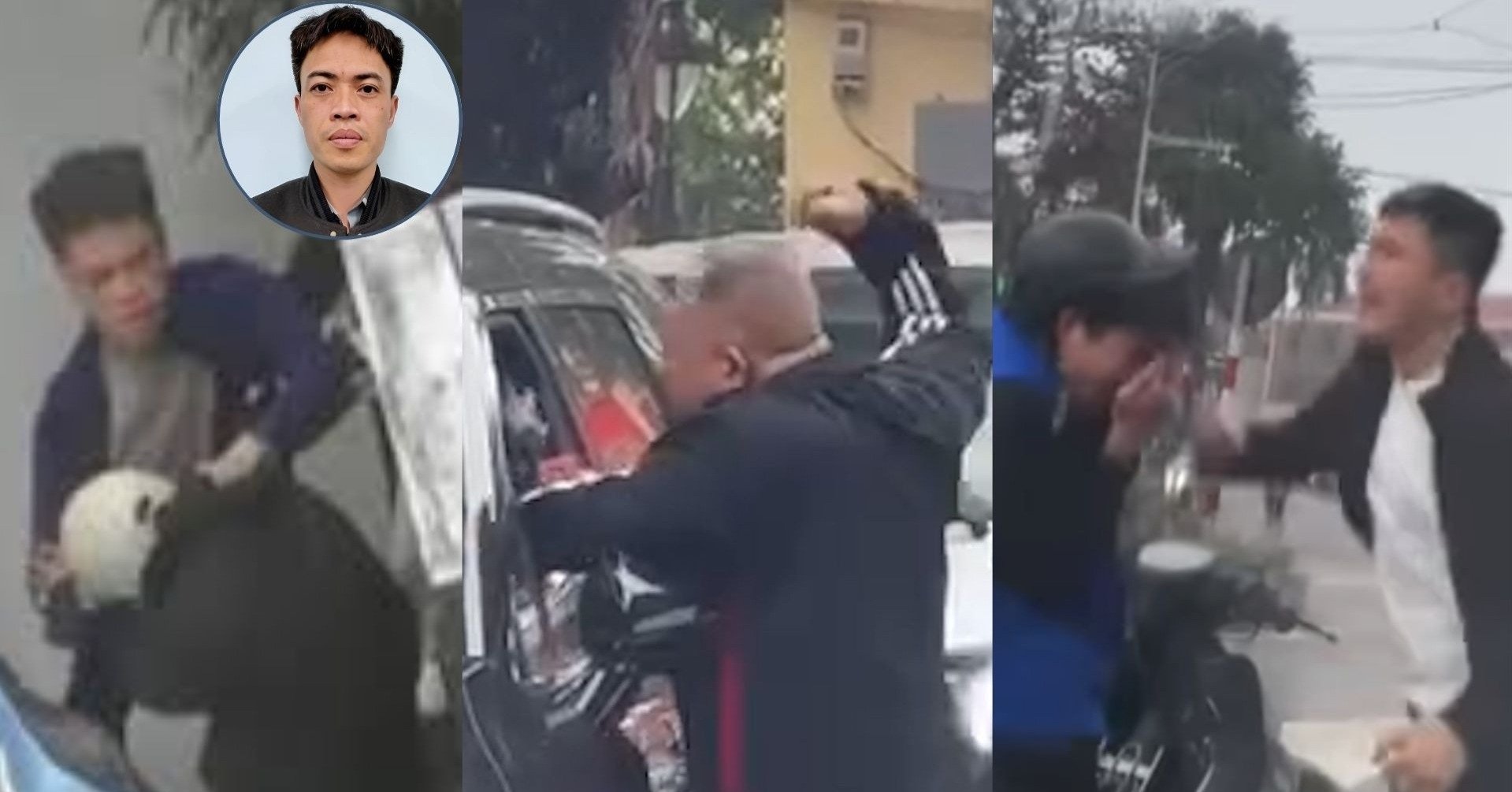

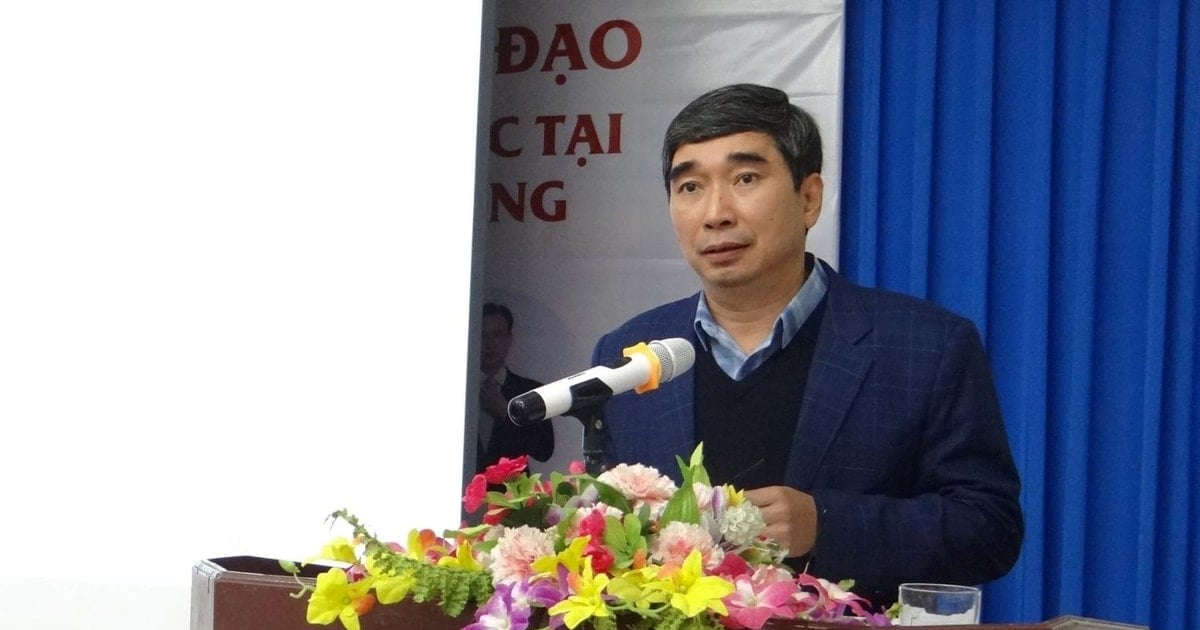

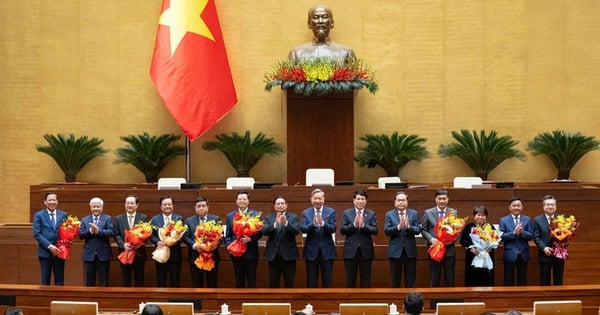
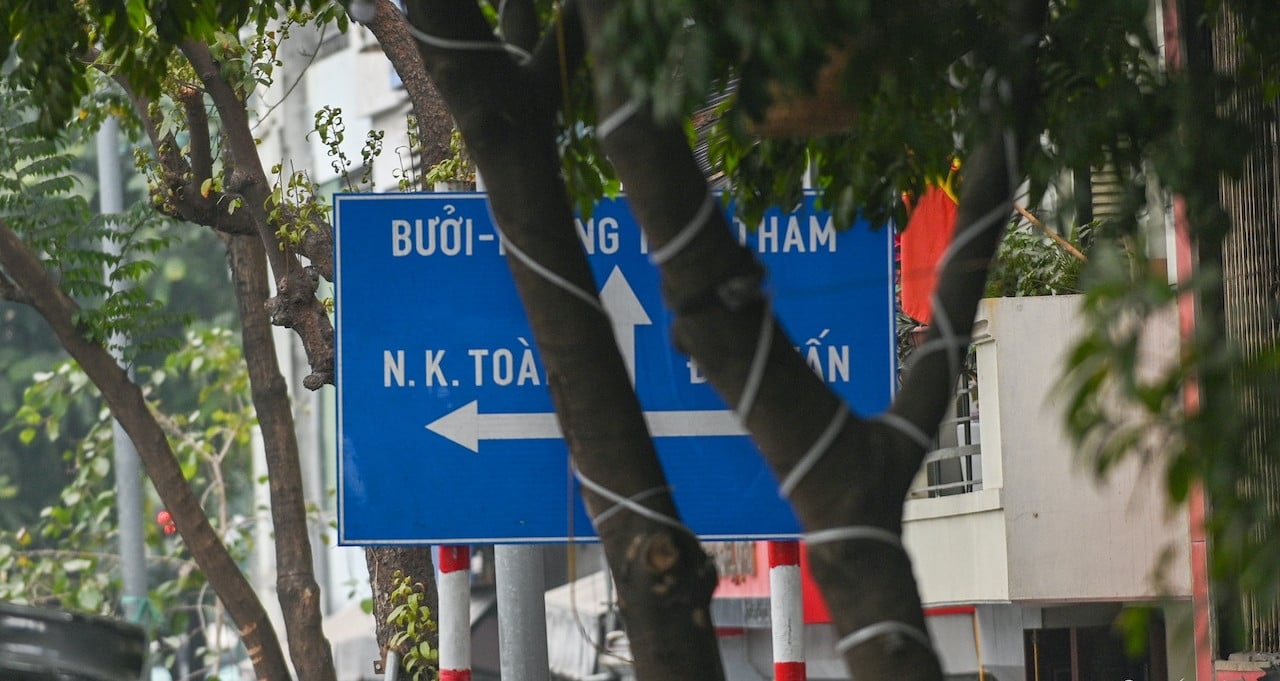
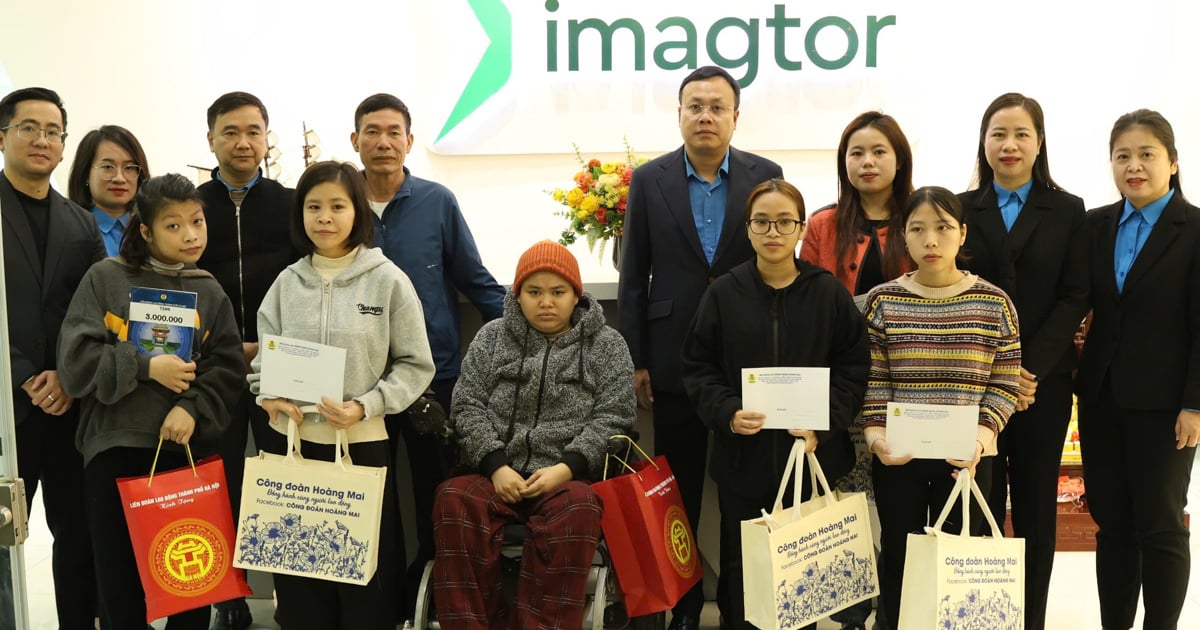
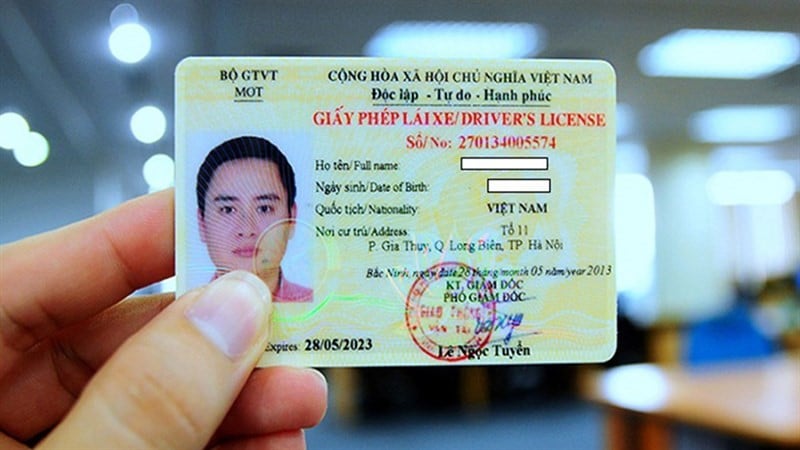



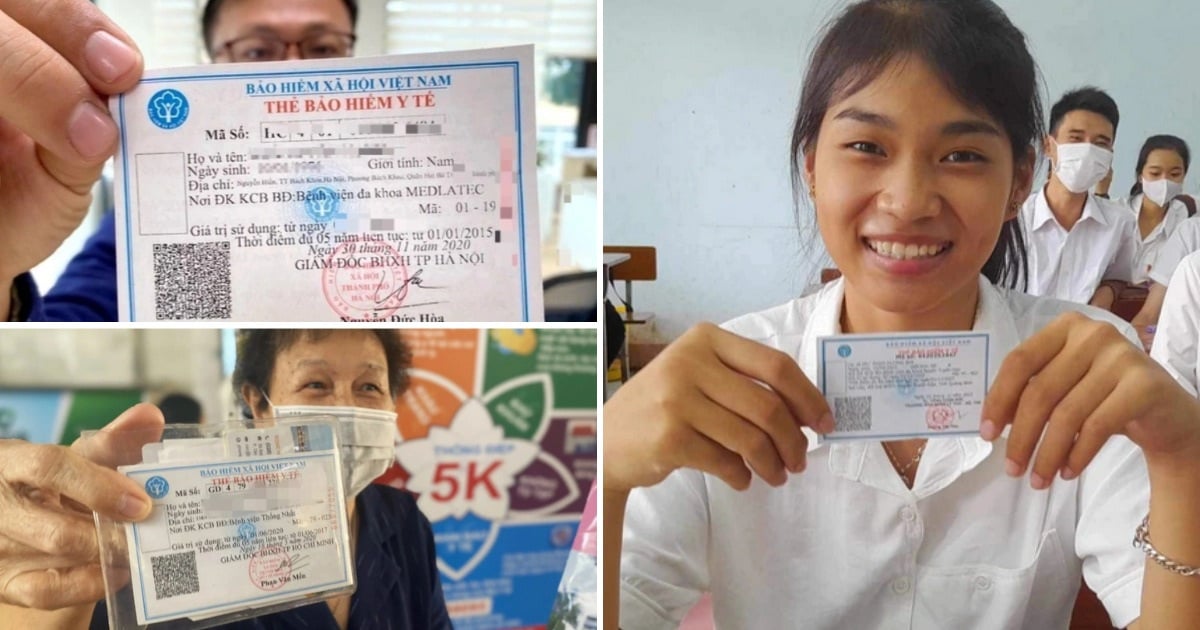



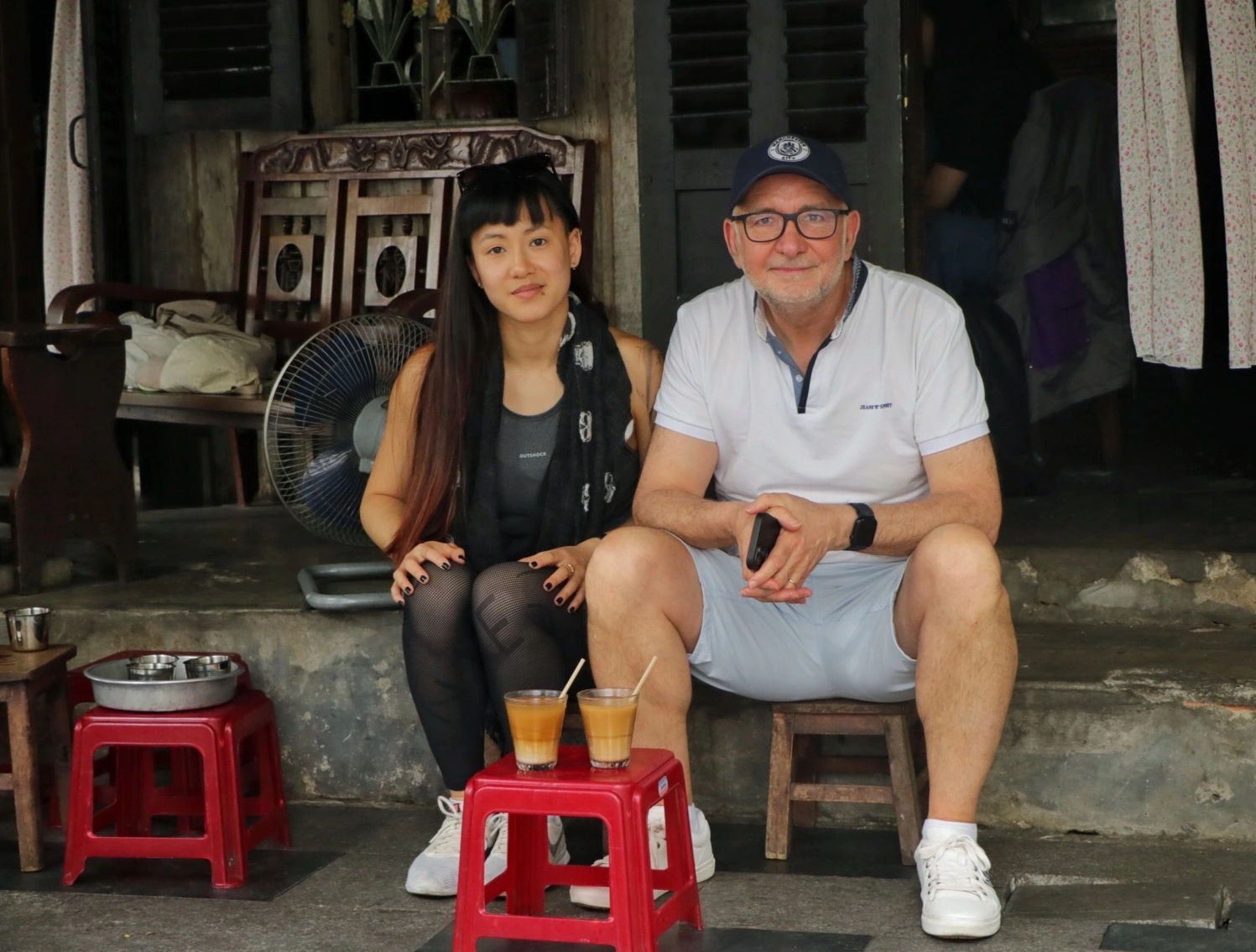

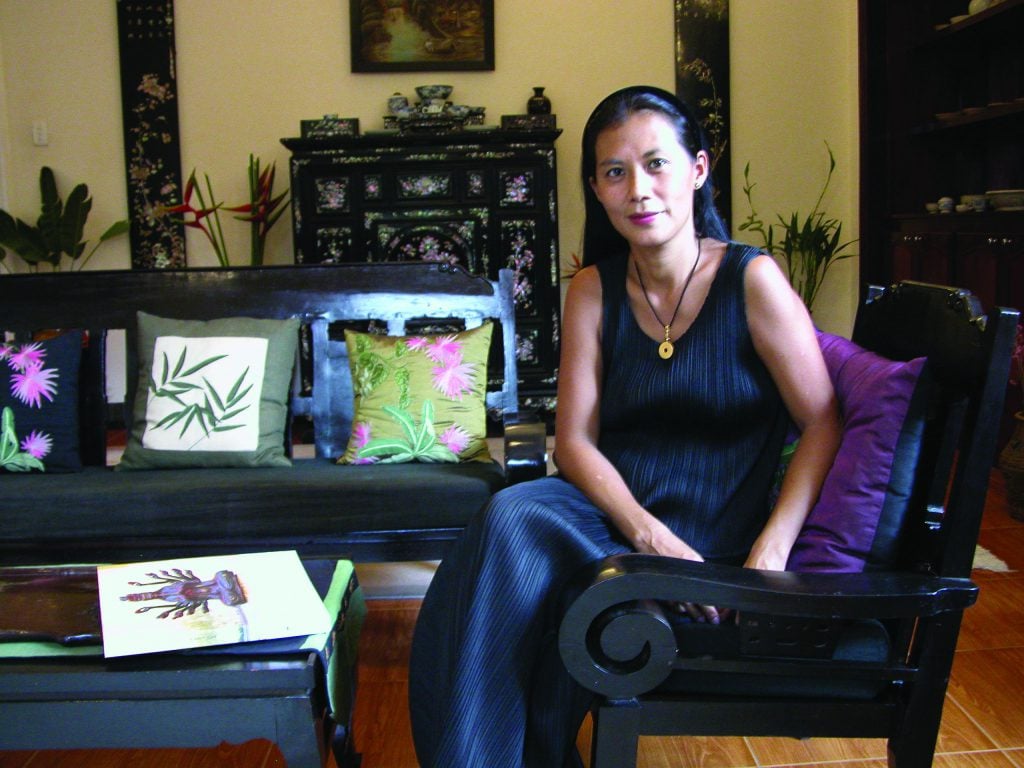
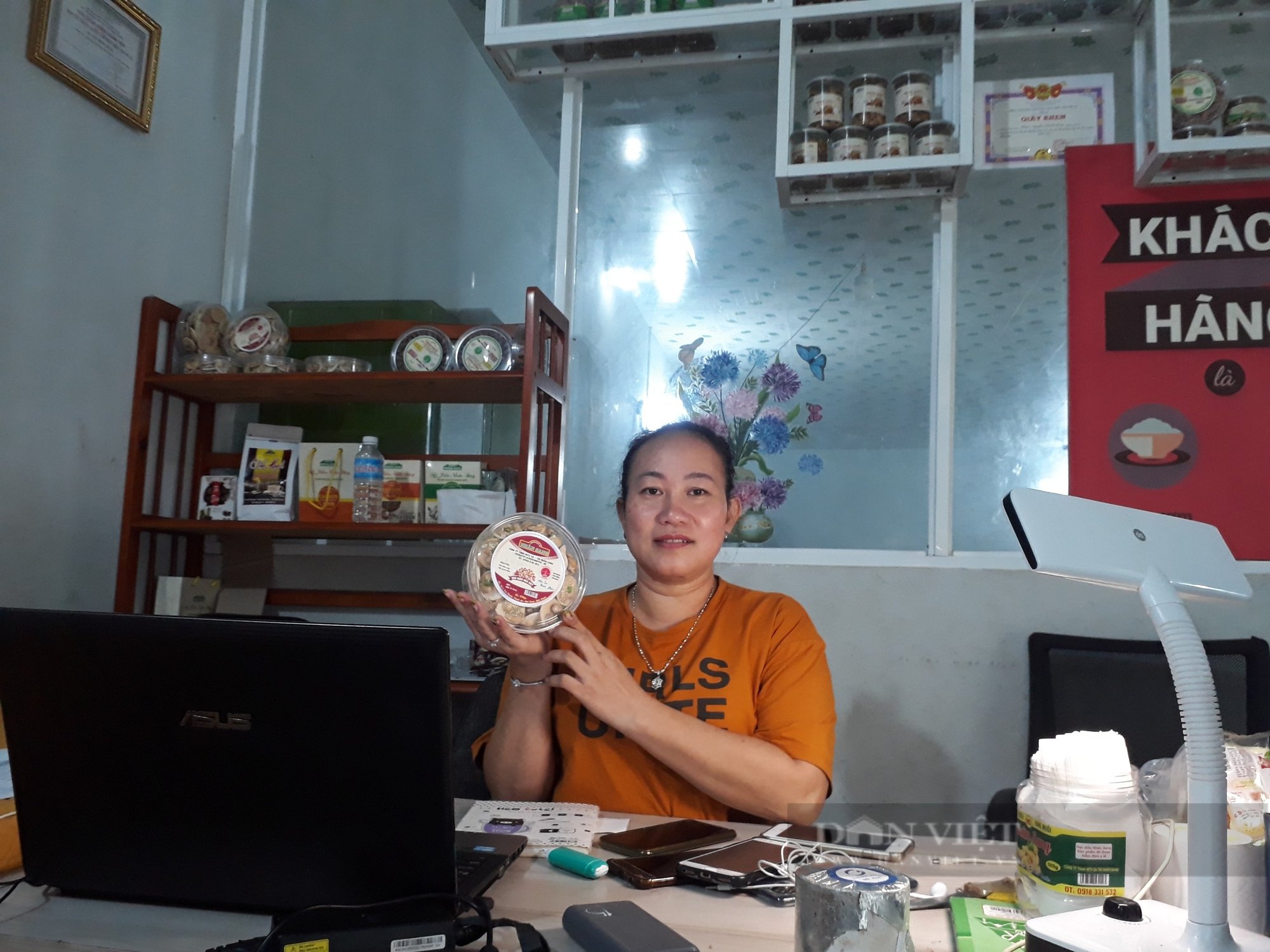

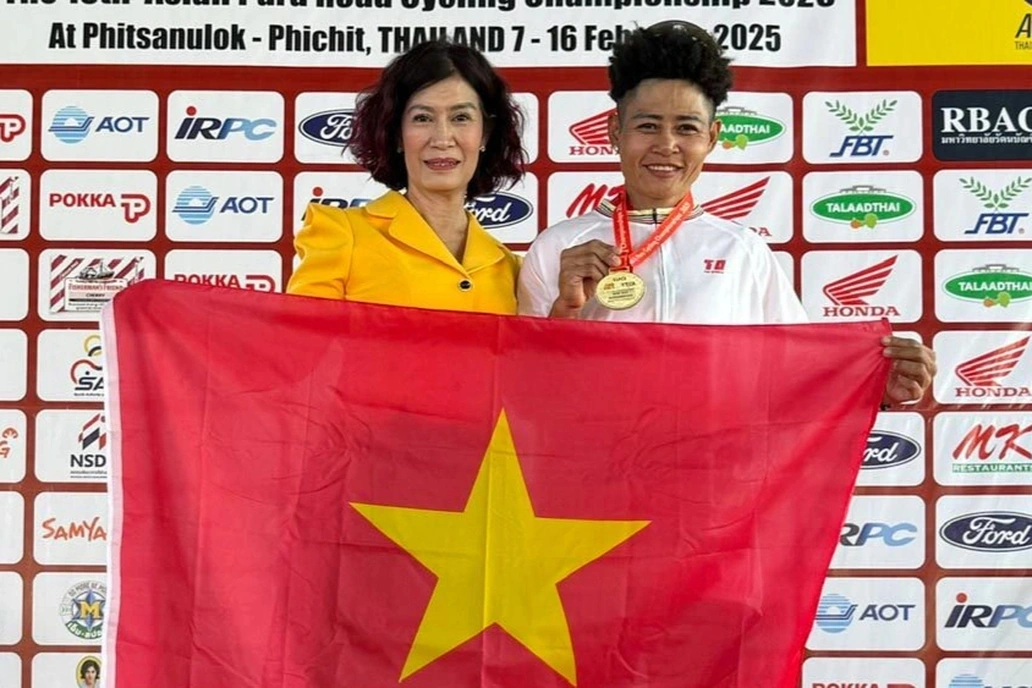

Comment (0)